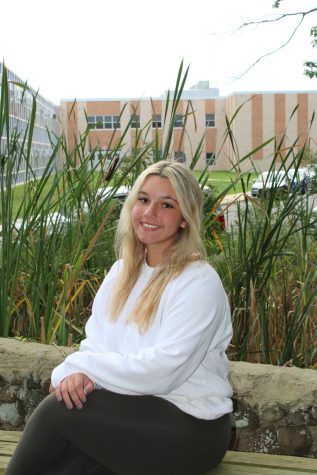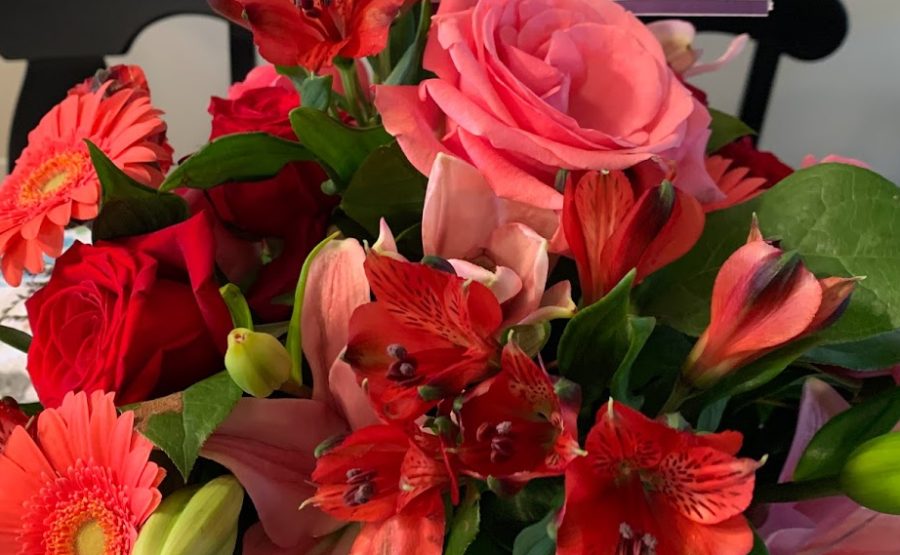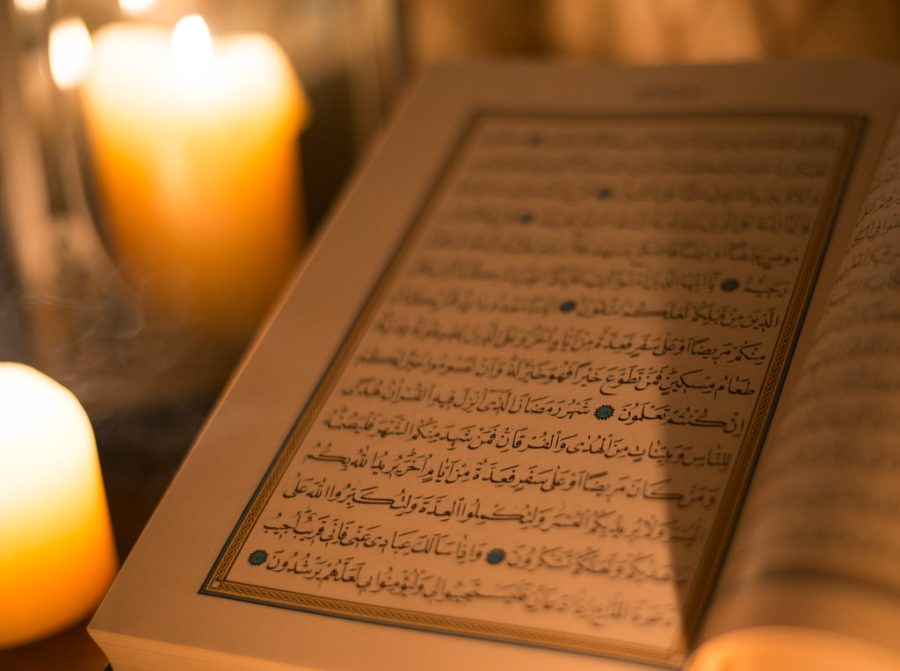Photo Credit: Danielle Allen
For many spring is a time of rebirth but is also is a time of many religious holidays.
Observing religious holidays can pose obstacles
April 7, 2023
This spring Christians, Jews, Muslims, Sikhs, and Buddhists will observe religious holidays.
Christians recognize Lent as a period of 40 day prior to Easter. This period begins with Ash Wednesday and continues until Easter Sunday. Lent is a time when Christians fast and repent for their sins. As a form of penance for their sins, Christians may give up something such as sweets during this time. Some Christians refrain from eating meat during Lent. Concluding the Lenten period, Christians celebrate Easter which is considered one of the holiest of days in the religion.
Passover is one of the holiest times for the Jewish religion. According to The History Channel “Passover commemorates the story of the Israelites’ departure from ancient Egypt, which appears in the Hebrew Bible’s books of Exodus, Numbers and Deuteronomy, among other texts.” On Passover evening, Jews serve a ritual meal called a seder which consists of bitter herbs, vegetables dipped in salt water, unleavened bread, a lamb shank bone and charoset. During this period, Jews remove all products containing yeast from their homes. This symbolizes the removal of sin and Israelites’ rushed departure from ancient Egypt.
This year Ramadan falls between March 22 and April 20. It is observed during the ninth month of the Islamic calendar. Its a period of fasting and prayer for Muslims. Its observance is one of the Five Pillars of Islam. Fasting lasts from dawn to sunset and includes not consuming water or food. This holiday commemorates the first revelation of the Quran to Muhammad and ends with Eid Al Fitr.
On April 14, Sikhs celebrate Vaisakhi, the first day of the month of Vaisakh. Vaisakh honors the creation of the Khalsa Panth, an order of Sikhs devoted to serving the Creator and humanity. In India it signifies the spring harvest and the Indian Solar New Year. During this time, Sikhs hold kirtans, community fairs, go to Gurdwaras (a Sikh’s place of worship), and share food. It is both a religious holiday and cultural holiday. According to Wikipedia, “Vaisakhi was also the day when Bengal Army officer Reginald Dyer orders his troops to shoot into a protesting crowd, an event which would come to be known the Jallianwala Bagh massacre; the massacre proved influential to the history of the Indian independence movement.” During this time it is customary for Indians to perform mandatory charity called dana, raise a flag, and soak in sacred rivers.
For Buddhists, May 5 honors the birth of Siddhartha Gautama, Buddha, and is the most important holiday in the religion. It is called Vesak Day or Buddha Day and its celebration dates back to 623B.C. It is the most important day in the religion because it marks the birth of Buddha, the enlightenment of Buddha and the death of Buddha. When Buddha received his enlightenment, he understood the meaning of life. Therefore, this is a time to reflect of his life’s teachings. Although many celebrate it differently, many go to the temple for the entire day and night to see the full moon. It is a time for chanting, meditation, reflection, good deeds and sharing food.
Here you will find two articles: one about Ramadan and the other about Easter. By fasting, Muslims sacrifice for their beliefs and some daily activities many pose a challenge to those fasting. The article about Easter looks at celebrating holidays in multireligious home.
Photo Credit: Photo via Flickr under Creative Commons License
Pictured is an image of the Quran, the Muslim holy book. This book is often used throughout the month of Ramadan for prayer.
Ramadan Mubarak: explaining the holy month
Ramadan is the ninth month of the Islamic calendar, and it is considered one of the holiest months for Muslims worldwide. During this month, Muslims fast from dawn until sunset, abstaining from food, drink, and other physical needs. It is a time of spiritual reflection, increased worship, and generosity toward others.
Preparing
Muslims prepare for Ramadan in many ways. Some begin by increasing their worship and charitable activities in the months leading up to Ramadan. Others focus on preparing their bodies by adjusting their sleep schedules and eating habits. Regardless of how they prepare, Muslims view Ramadan as an opportunity to strengthen their relationship with Allah, God, and seek forgiveness for their sins.
Fasting
The month of Ramadan begins with the sighting of the new moon, which signals the start of the first day of fasting. The first meal of the day is called Suhoor. Suhoor is eaten before dawn and the fast is broken with the evening meal, called Iftar.
Muslims typically break their fast with dates and water, following the example of the Prophet Muhammad, who would break his fast in this manner. During the month of Ramadan, Muslims focus on increased worship, reading and reciting the Quran, and seeking forgiveness from Allah.
Fasting during Ramadan is not just about abstaining from food and drink. Muslims are also expected to avoid engaging in negative behaviors such as lying, gossiping, and engaging in romantic relations during daylight hours.
Fasting is seen as an opportunity to purify the soul and strengthen one’s relationship with Allah. Muslims use Ramadan to connect with their families and communities. Many Muslims gather for meals with family and friends, breaking fast together, and sharing their blessings. Communities often organize Iftar meals, bringing people together to share in the spirit of the holy month.
Praying during Ramadan
Many mosques offer nightly Taraweeh prayers, which are special prayers performed only during Ramadan. These prayers can last for several hours. Muslims believe that they earn rewards for their worship during this. Charity is essential during this time. Muslims are encouraged to be more generous during this month, giving to the poor, feeding the hungry, and helping those in need. Many mosques and Islamic organizations set up donation drives and other charitable activities during Ramadan to inspire Muslims to give to those less fortunate.
In conclusion, Ramadan is a significant month for Muslims worldwide. It is a time of spiritual reflection, worship, and increased generosity toward others. Muslims prepare for it by adjusting their habits. During the month, Muslims fast from dawn until sunset. They focus on worship, reciting the Quran, seeking forgiveness, and giving to those in need. Ramadan is a time of renewal and strengthening of the relationship between Muslims and Allah, and it is a time of great blessings and rewards for those who participate.

Photo Credit: Photo via Wikimedia Commons under Creative Commons License
Pictured is a Greek Orthodox alter decorated for an Easter service, called an Epitaphios. Placed on it is a decorated Bible, and red eggs that symbolize Jesus Christ’s blood.
Celebrating Easter: egg-stra special traditions from an interfaith home
I grew up in a Roman Catholic-Greek Orthodox interfaith home. I am of the Greek Orthodox faith. However, I still celebrate Roman Catholic holidays because of my father. Celebrating Easter was always hectic but nevertheless provided wholesome family memories I’ll cherish forever.
Roman Catholic Easter
The Roman Catholic Church marks Easter as the first Sunday that follows the first full moon of the Spring Equinox. Because of this, the date of the holiday changes each year. Easter Sunday marks the ending of Lent and is the last day of the holy week. It celebrates Jesus Christ’s resurrection from the dead. This is why “Christ is Risen” is said on this day. Roman Catholics often fast prior to Easter to perform an act of penance for their sins. Easter celebrations often have delicious foods such as ham and other meats because of this.
Greek Orthodox Easter
Greek Orthodox Christians celebrate Easter for the same reasons as Roman Catholics. The only difference between the two Easters is the date. Greek Orthodox Easter often falls on a different date than Roman Catholic Easter. This is because the Greek Orthodox one is calculated according to the Julian calendar. The Roman Catholic Easter is calculated according to the Gregorian calendar. Greeks say “Χριστός ανέστη,” which is “Christ is Risen.” They also partake in Lent and fasting as well.
Blending both
I grew up spending time with predominantly my father’s family who are all Roman Catholic. This means that Greek traditions were never really present in my life for this holiday. Easter egg hunts and roasted ham will be in my mind forever. When Greek Orthodox Easter rolls around my mother, sister, and I go to our church for a service. This is really the only aspect of my religion and culture that I embrace at this time. Most Greeks eat roasted lamb for Easter; we do not. I wish I could indulge in my religion and culture more. However, I’m never surrounded by anyone that celebrates the same things as me. I always felt a bit uncomfortable celebrating Roman Catholic holidays because my family would never fail to point out that I, in fact, was not Roman Catholic.
My Catholic grandmother would bring my sister and me to her Catholic church for Ash Wednesday. All of the churchgoers would stare at us because they didn’t recognize us as part of the parish. This division was always confusing and uncomfortable, especially as a young child.
One tradition that I do with my mom involves dying Easter eggs. Greeks dye eggs red to symbolize Jesus Christ’s blood. Then we play a game that involves hitting two eggs together. The egg that cracks is the loser. These red eggs are often baked into a bread. This bread is tsoureki. The bread is sweet and delicious and makes really good French toast. A coin is also baked into the bread. Whoever finds the coin in the bread is said to have good luck for the following year.
Other inter-faith homes
Soula Morales is a Greek Orthodox housewife. She is married to a person of Roman Catholic faith. However, her husband converted to Greek Orthodox because their son is baptized Greek Orthodox. He wanted all three of them to be a part of the same religion. Soula says that her husband likes to celebrate his wife’s religion, though as it’s a new experience for him.
The week leading up to Easter, Soula and her family fast until Saturday. Then they go to church on Saturday night and receive the holy light, and then they can eat. When they get home her family eats a soup with meat that she had already prepared and cracks the red eggs. Soula’s family also eats tsoureki during Easter. On Sunday, they roast lamb and have a big feast which is what most Greeks do. When asked how she feels about her Greek heritage, Soula says she is, “Proud to be Greek and follow the religion of her people. It’s very important believing in the manifestation of God and what he has created for us and our people. Orthodox is very special and makes me very proud since it is my heritage. It’s what we believe in.”

Dylan DaCunha is a senior at Colonia High School. She has enjoyed writing all her life, going all the way back to elementary school. She plays softball...


